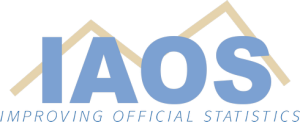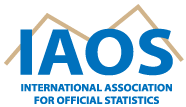

Date: June 15, 2022
Time: 9:00 – 10:30 am | Eastern Daylight Time (Washington, D.C.)
Location: Register here
The event will be held on the GoToWebinar platform
Background:
Data are becoming an integral part of the daily lives of most people around the world, with global data flows increasing one thousand times over the last 20 years. The transformations emerging from this data revolution could impact all aspects of societies and economies, including improving the lives of the more than 700 million people living in extreme poverty. From information gathered in household surveys to pixels captured by satellite images, data can inform policies and spur economic activity, serving as a powerful weapon in the fight against poverty and transforming the lives of poor people. However, we can only unlock the full value of data in both traditional and new data ecosystems if we ensure that data can be safely shared, used, and reused by all stakeholders.
To that end, the World Bank’s World Development Report 2021: Data for Better Lives (WDR2021) offers an aspirational vision of an integrated national data system (INDS) as a way for countries to realize the potential of data for development, using the three principles of the social contract for data—value, trust and equity. Such a system relies on an approach to data governance that is intentional, whole-of-government, multistakeholder, and collaborative. It explicitly builds data production, protection, exchange, and use into planning and decision-making and integrates participants from civil society and the public and private sectors into the data life cycle and into the governance structures of the system. For countries to overcome the many barriers that stand in the way of implementing these data systems, the report advocates for investments in five foundational elements: human capital, trust, funding, incentives, and data demand.
To help operationalize this vision, the World Bank’s Development Data Group is organizing a virtual seminar in collaboration with the International Association for Official Statistics (IAOS). Bringing together a diverse group of discussants, the session will focus on building an INDS and the critical role NSOs can play in this process, which the WDR2021 extensively discusses.
Context:
In the current global context of an unprecedented convergence of crises, fulfilling the vision of an INDS might seem elusive. While a recent global survey on national statistical offices (NSOs)[1] attested to the resilience of NSOs amidst the COVID-19 pandemic, it has also revealed a disrupted global agenda on statistical capacity building and that some statistical systems are falling behind, particularly in low- and middle-income economies. For many governments, producing high-quality data is already a challenge in itself, and thus, data exchanges and integration among various partners may not seem feasible.
Nevertheless, according to the WDR2021, any country can take steps toward fulfilling the vision of an INDS. Using the data maturity model, the report describes the concrete steps countries can take to move closer to this vision. The data maturity model is used as an organizing framework to help determine the strengths and weaknesses of the existing data system and identify the sequential steps that can be taken to establish an INDS. The model differentiates three stages. At low levels of data maturity, countries should prioritize establishing the fundamentals of a national data system. Once the fundamentals are in place, countries should seek to initiate data flows. At advanced levels of data maturity, the goal is to optimize the system.
Target audience:
The international statistical community, both statistics producers and users from across the globe, as well as relevant private sector representatives.
Format:
The event will be 90 minutes long in a virtual panel discussion format, featuring a diverse group of discussants.
Subject areas:
A diverse group of leading members of the development, statistics, and data communities will unpack several foundational elements of an INDS—such as human capital, trust, funding, incentives, and data demand—and discuss the type of coordination and partnerships needed to advance the implementation of INDS.
Objective:
The event aims to help operationalize the vision of an INDS as put forward by the WDR2021 by:
- raising awareness about and promoting the concept of an INDS among an international group of relevant stakeholders who have the technical capacity to move their national data systems closer to this aspirational vision in their country contexts;
- focusing on priority-setting by these technical participants to inform support from IFIs/Foundations/technical implementers; and
- raising awareness about and promoting the concept of an INDS among an international group of relevant private sector stakeholders to encourage public-private partnerships on data.
The panel discussion will illustrate the vision of an INDS with specific, real-life examples in an effort to concretize an abstract concept for participants.
Expected outcomes:
Seminar attendees will leave the session with:
- an enhanced awareness and concretized understanding of how an INDS can be established and operationalized, as illustrated by concrete examples;
- an appreciation for the (economic, social, and political) benefits of an INDS, as illustrated by concrete examples;
- a determination to advocate for establishing an INDS in their respective country/regional contexts with relevant stakeholders with decision-making authority;
- a familiarity with resources (including materials and contacts) for further exploration of the concept of an INDS as applicable to their respective country contexts.
List of speakers:
- Dr. Misha Belkindas (chair): President, IAOS; Managing Director, ODW Consulting; co-founder and board member of Open Data Watch; former Manager, World Bank’s Development Data Group
- Prof. Paul Cheung (discussant): Director of Asia Competitiveness Institute, National University of Singapore; former Professor of Social Policy and Analytics, National University of Singapore; former Director, UNSD; former Chief Statistician, Government of Singapore
- Mr. Andrew Rzepa (discussant): Partner and Executive Director of UN Partnerships, Gallup
- Dr. Albina Chuwa (discussant): Director General, National Bureau of Statistics, Tanzania
- Mr. Craig Hammer (discussant): Program Manager, World Bank’s Development Data Group
- Ms. Malarvizhi Veerappan (WDR2021 presenter): Manager, World Development Report 2021 | Senior Data Scientist, World Bank’s Development Data Group
Agenda:
- Opening remarks by Dr. Misha Belkindas (welcoming participants, explaining the agenda, and introducing house rules)
- Background/scene-setting presentation by Ms. Malarvizhi Veerappan, introducing the WDR2021 and key recommendations on an INDS to set the context for the panel discussion
- Panel discussion with Prof. Paul Cheung, Mr. Andrew Rzepa, Dr. Albina Chuwa and Mr. Craig Hammer
- Q&A with audience
- Closing remarks by Dr. Misha Belkindas
[1] Survey on the Implementation of the Cape Town Global Action Plan for Sustainable Development Data conducted by the World Bank, UNSD, and Paris21: https://www.worldbank.org/en/research/brief/survey-on-the-implementation-of-the-cape-town-global-action-plan-for-sustainable-development-data.

